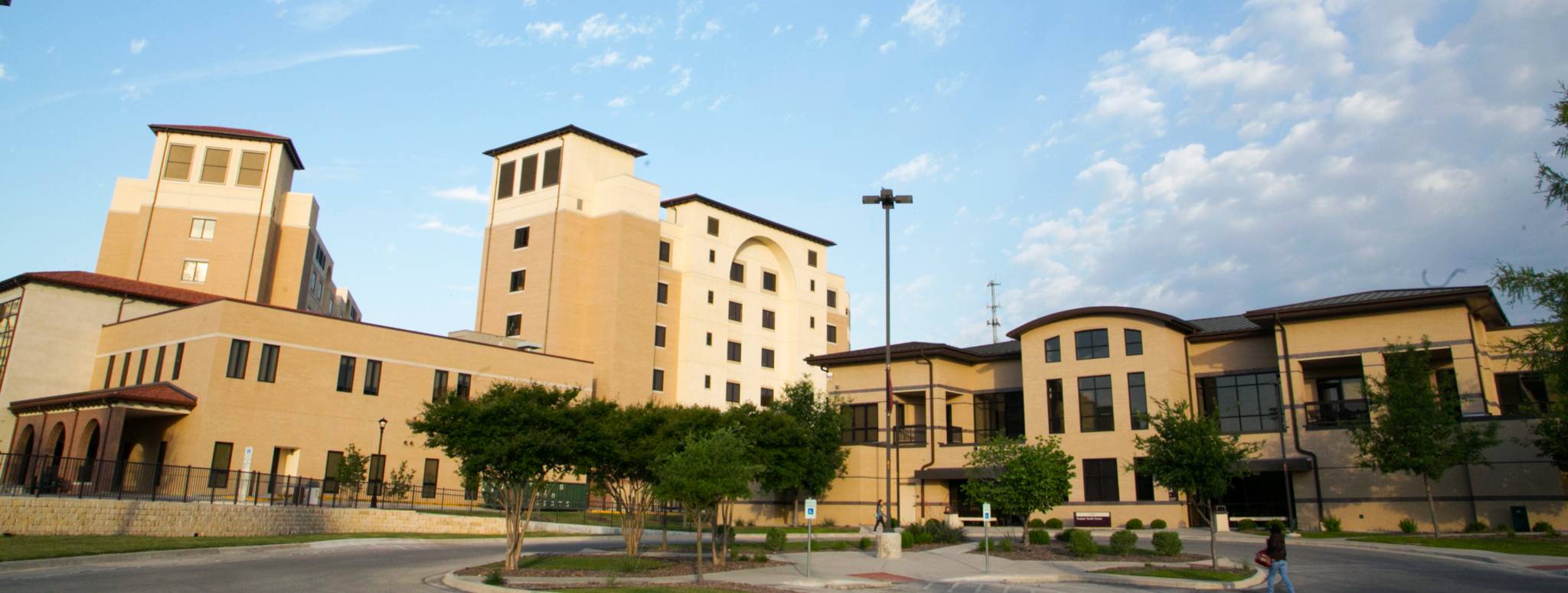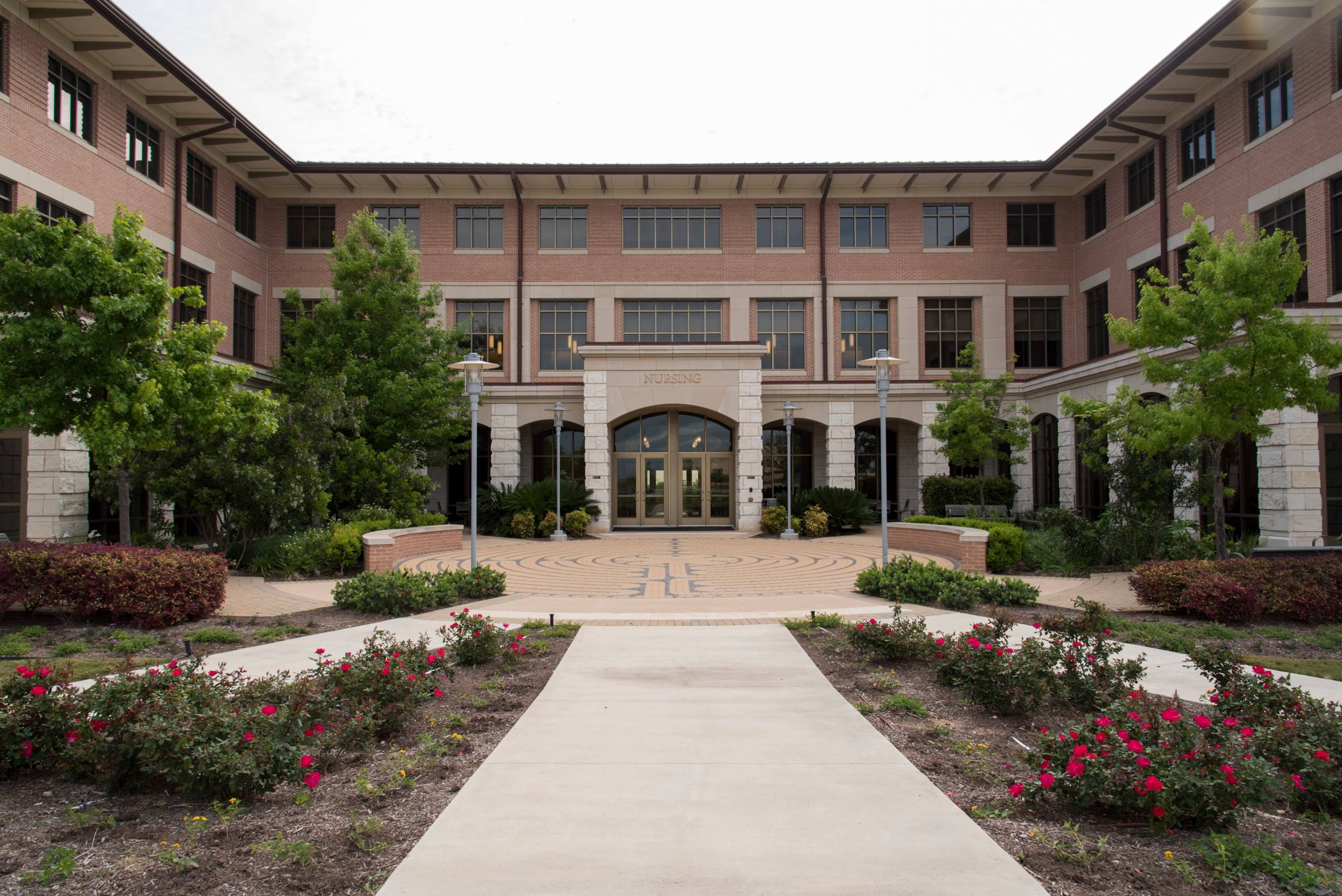COVID-19 Information Center
Texas State University is committed to keeping our community safe and our students advancing toward their educational goals. This page gathers all COVID-19 resources and recommendations in one location so you can easily find the information you need.
NOTICE: Bobcat Trace and the COVID-19 Dashboard have been discontinued.
Positive cases no longer need to report to Bobcat Trace.
Vaccination and Treatment
COVID-19 Vaccines
Vaccination is vital to the country’s efforts to bring the pandemic to an end. Vaccines have proven to be safe and effective with no evidence of any long-term side-effects. They continue to be highly effective in preventing serious illness, hospitalization, and death.
Texas State University offers the Pfizer COVID-19 vaccine by appointment at both the San Marcos and Round Rock campuses. Most health insurance plans will cover vaccination. For persons without insurance, free vaccinations will be available at CVS, Walgreens, and community health centers.
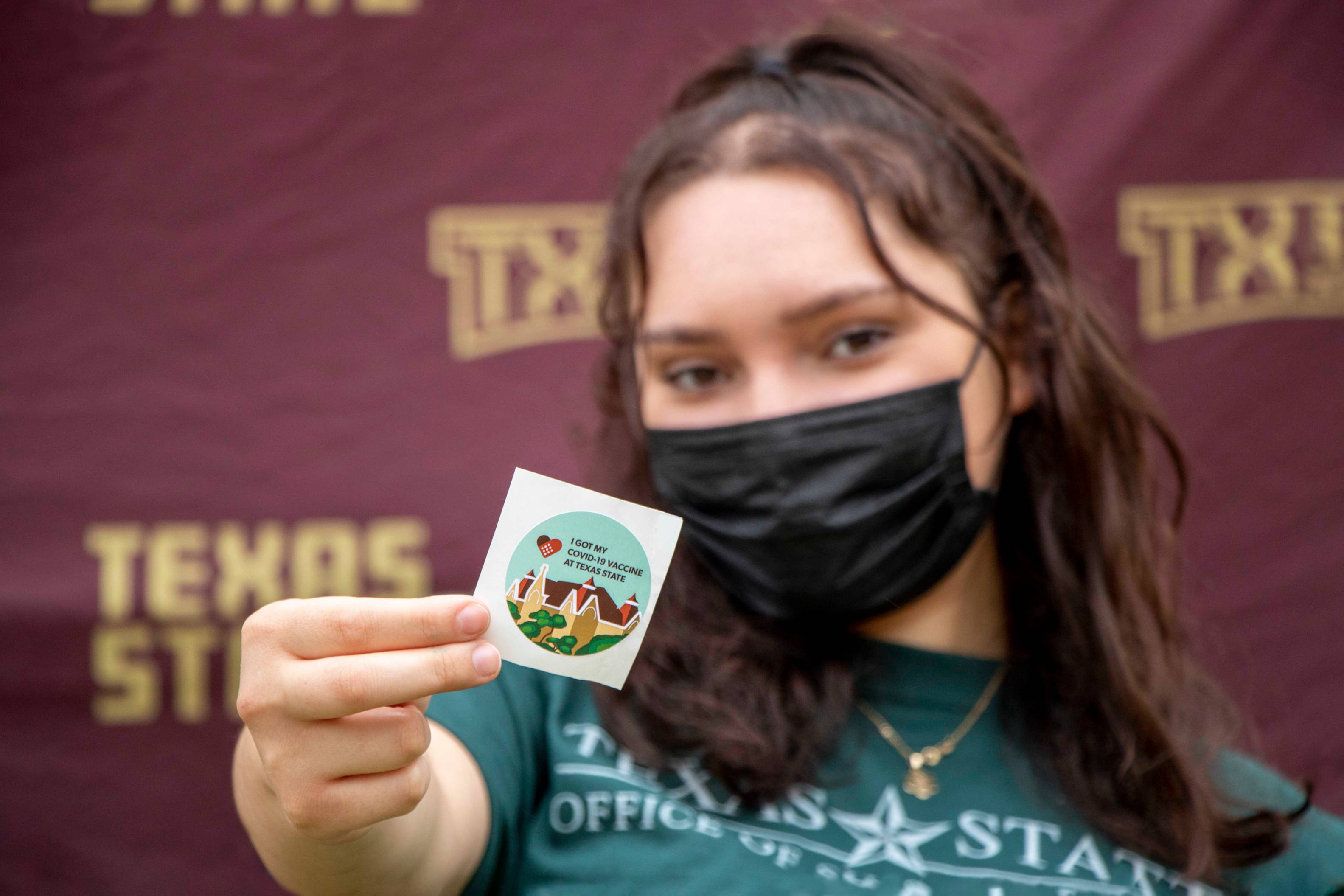
COVID-19 Vaccine FAQs
Answers to some commonly asked questions about vaccines are provided below.
-
How important is getting a booster?
Most COVID-19 vaccines require two doses to produce the optimum immune response and protection. Completing your primary vaccination series is important to developing and extending your immunity.
COVID-19 vaccine boosters can further enhance or restore protection that may have waned over time since completing your primary vaccination series.
People are protected best from severe COVID-19 illness when they stay up to date with their COVID-19 vaccines, which includes a booster for many people. To learn more about the benefits of boosters, see the CDC's Frequently Asked Questions about COVID-19 Vaccination.
-
What are the current recommendations for COVID-19 boosters?
COVID-19 boosters are currently recommended for individuals 6 months and older. Persons at high risk for serious disease, such as those 50 and older, those with underlying medical problems, and those with weakened immune systems, are strongly encouraged to get vaccinated.
See more information of the CDC's COVID-19 Vaccination webpage.
To receive a booster at Texas State, schedule an appointment with the Student Health Center by calling (512) 245-2161.
-
Does COVID-19 vaccination affect testing for COVID-19?
According to the CDC, none of the approved COVID-19 vaccines can cause you to test positive on viral tests, which assess for current infection.
If you develop an immune response after you are vaccinated, which is the desired effect, you may test positive on antibody tests. Antibody tests indicate previous infection and that you may have some level of protection against the virus.
-
Should I get vaccinated if I have already had COVID-19?
Yes, the CDC recommends that persons who have been previously infected with COVID-19 get vaccinated.
It is unclear how long the natural immunity that develops after infection lasts. Because it is rare that a person infected with COVID-19 will be reinfected within 90 days due to their natural immunity, they can wait up to 90 days before getting vaccinated.
COVID-19 Treatments
For those experiencing symptoms of COVID-19, new treatments are available.
COVID-19 Testing
On-Campus San Marcos Location
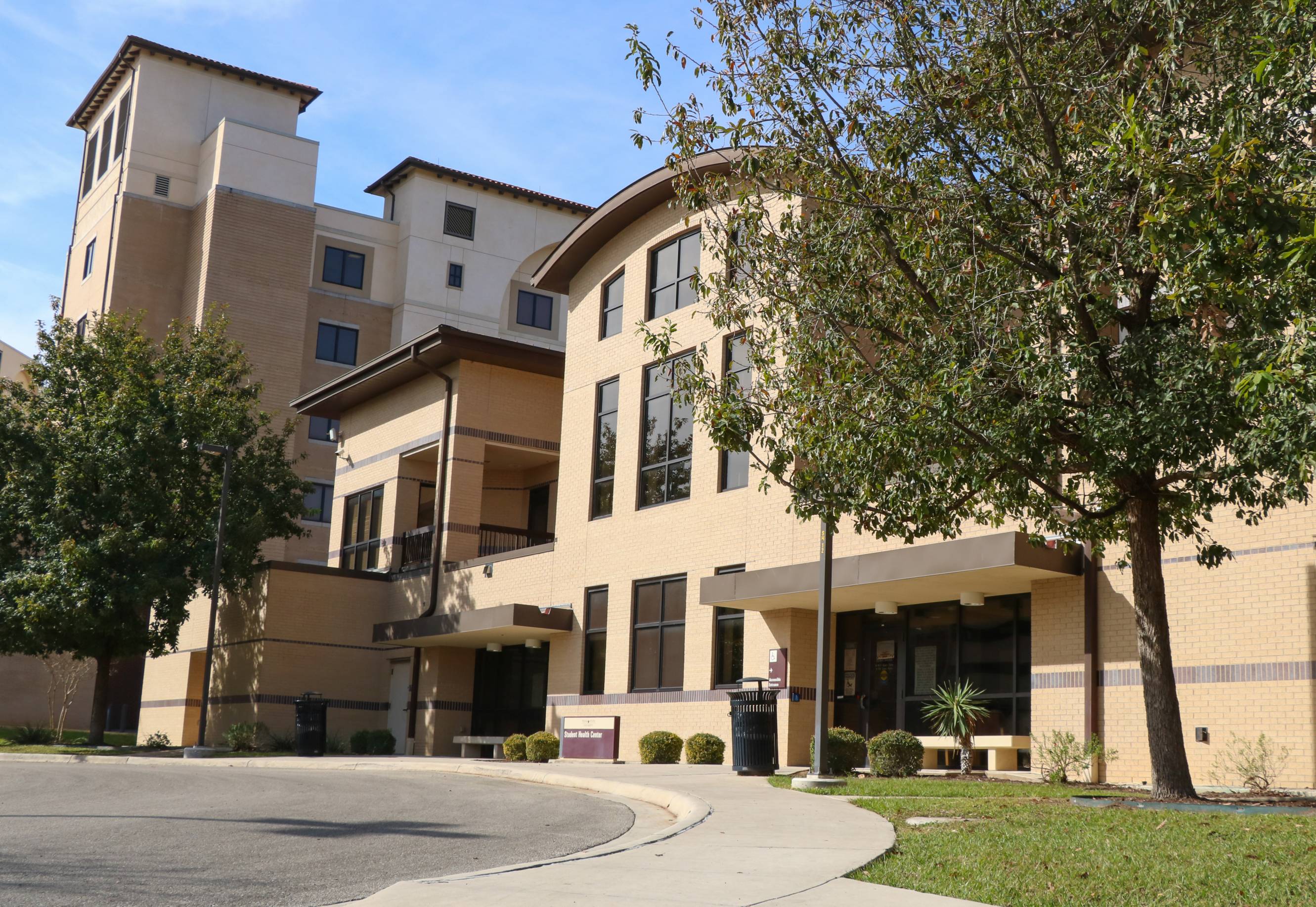
All Texas State faculty, staff, and students may schedule COVID-19 PCR testing by calling the Student Health Center at 512-245-2161 to schedule an appointment, Monday-Friday. Most health insurance plans will cover the cost of testing. The charge for a PCR test is $75 for those who have no insurance or are out-of-network.
The federal government has authorized additional free at-home rapid antigen tests. If you have not requested the tests, this may be another option.
On-Campus Round Rock Location
Student Health Center at the Round Rock Campus
Faculty, staff, and students can call (512) 245-2161 and select option 2 to schedule a COVID-19 PCR test in the Student Health Center in Round Rock. Tests are sent to Clinical Pathology Laboratories (CPL) for analysis. Results will be sent to the patient through the patient portal. At-home rapid antigen tests are available for purchase.
Hours:
Monday, Wednesday, Friday - In-Person or Telehealth
8 am - 11:30 am and 12:30 pm - 5 pm
Tuesday, Thursday - Telehealth Only
9 am - 6 pm
What to Do If You Are Sick
Symptoms of COVID-19
COVID-19 illness may present like a cold or allergies. Symptoms can appear 2–14 days after exposure to the virus. Illness may be mild to severe. It is important to test for COVID-19 if you develop symptoms of a cold or allergy. Some of the more common symptoms of COVID-19 are listed below.

- Sore throat
- Congestion or runny nose
- Sneezing
- Headache
- Persistent cough
- Fatigue
- Muscle or body aches
- Fever
- Shortness of breath or difficulty breathing
- New loss of taste or smell
- Nausea or vomiting
- Diarrhea
For more information, see the CDC's Symptoms of COVID-19.
Next Steps If You Are Ill
Review the common symptoms of COVID-19.
Isolate yourself immediately if you are experiencing COVID-19 symptoms. Individuals with COVID-19 sometimes experience mild symptoms, few symptoms, or no symptoms at all.
If the test result is positive, review the following section, "Next Steps After Receiving a Positive COVID-19 Test."
If the test result is negative, you may return to work and school once your symptoms have improved and you are fever-free for 24 hours without taking a fever-reducing medicine.
What to Do If You Test Positive
Next Steps After Receiving a Positive COVID-19 Test
Face Masks
Choosing the Right Mask
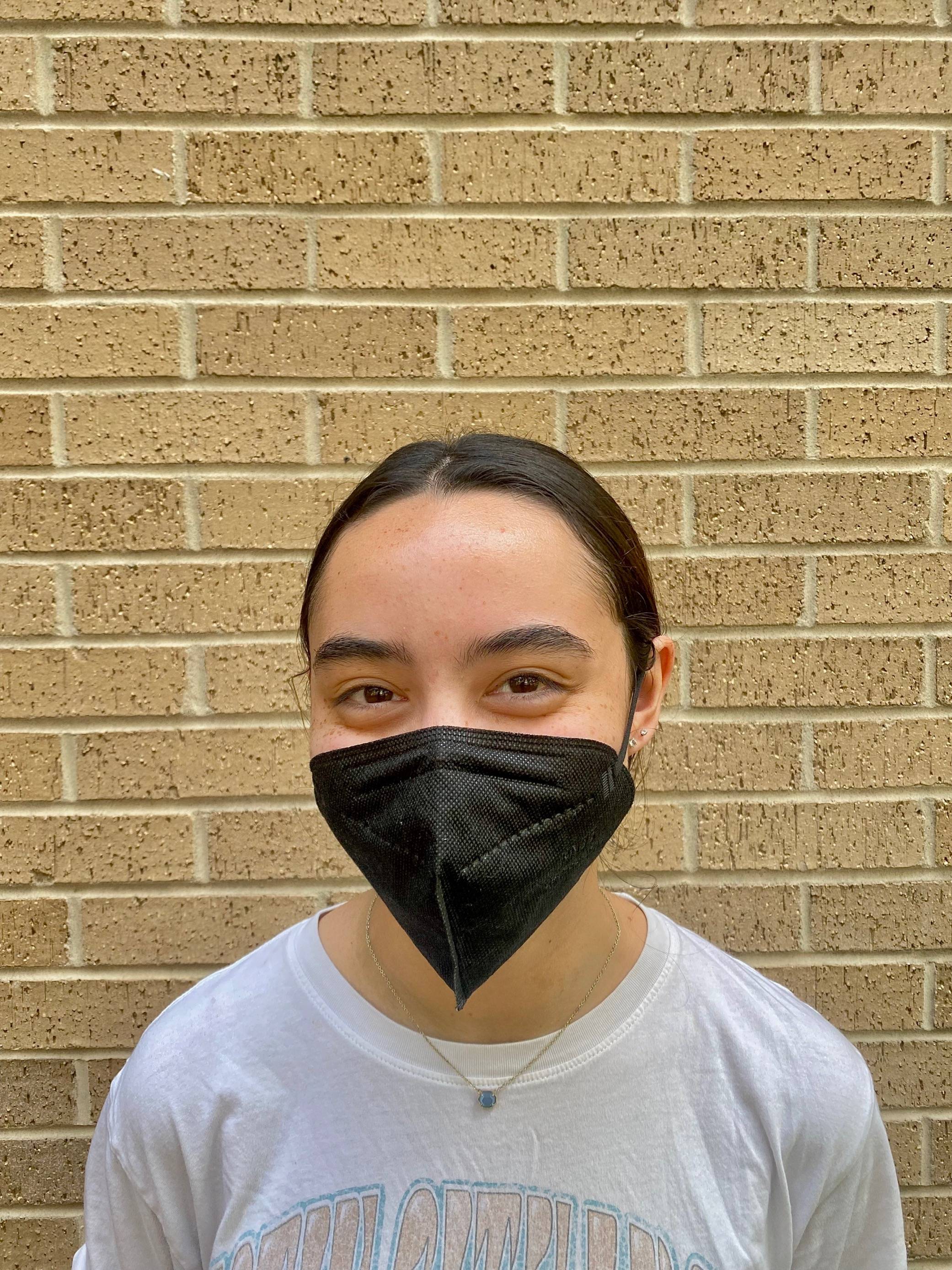
When choosing a face covering, select the most protective mask or respirator you can that fits well and can be worn consistently.
Masks are made to contain the particles you breathe, cough, or sneeze out and can provide some protection from the particles spread by others. Like masks, respirators can contain the particles you breathe, cough, or sneeze out, but they also protect you by filtering the air you breathe in.
Loosely woven cloth masks offer the least protection, while layered finely woven products offer more. The most protective masks are disposable surgical masks that prevent leaks at the nose, chin, and sides of face.
Respirators, such as N95s and KN95s, offer the highest level of protection and are recommended for higher risk situations and for people at risk for severe disease.
For more information on mask selection, see the CDC's webpage on Types of Masks and Respirators.
When to Wear a Mask
At any time, you can wear a mask based on your personal preference and risk level. When your local COVID-19 community level is high, the CDC recommends wearing a mask in public indoor settings, regardless of vaccination status.
There are a number of situations where the CDC recommends choosing a mask with greater protection:
- For people who are immunocompromised, older adults, and people with certain underlying medical conditions
- When caring for someone who is sick
- If you are not up to date on COVID-19 vaccinations
For more information on when to wear masks, see the CDC's webpage on Use and Care of Masks.
University Statements
Jun 6, 2022 Read More about Managing an Evolving COVID-19 Pandemic
Jan 25, 2022 Read More about COVID-19 Update: Reducing Risk During Spring Semester
Jan 14, 2022 Read More about Guidance for Spring 2022 Courses and Instruction
